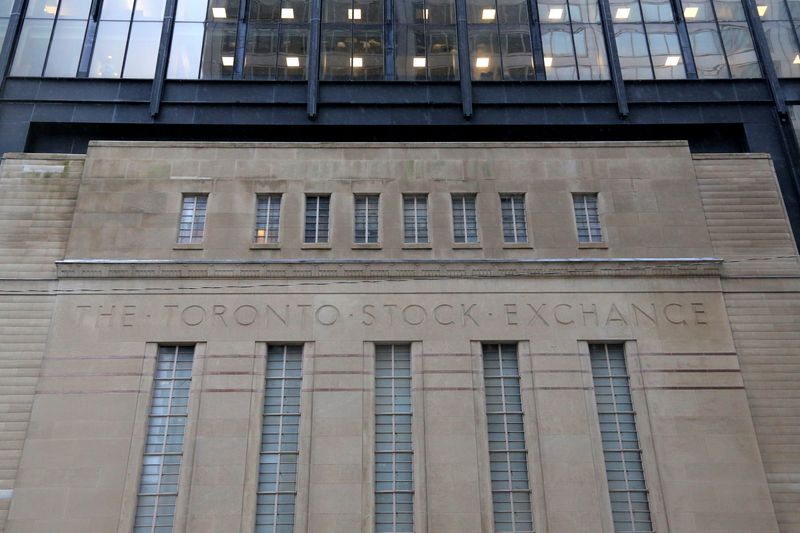
By Fergal Smith
(Reuters) -Canada’s main stock index fell on Monday to a seven-month low, including declines for energy and financial shares, as a widening trade war threatened to derail the global economy and despite the prospect of negotiations that could lead to deals.
Toronto Stock Exchange’s S&P/TSX composite index ended down 334.01 points, or 1.4%, at 22,859.46, adding to steep declines on Thursday and Friday and posting its lowest closing level since September 6.
The index has fallen 11.4% since posting a record closing high on January 30. That’s a magnitude that puts it in correction territory but a smaller pullback than for some other major indexes, such as the S&P 500.
U.S. President Donald Trump said he was not looking at a pause on tariffs to allow for negotiations with trading partners but said he would talk to China, Japan and other countries about the duties.
“It looks like deals are going to be made, which is a positive, yet the market is not sure,” said Allan Small, senior investment advisor of the Allan Small Financial Group with iA Private Wealth.
Energy was down 2% as the price of oil extended its recent declines, settling 2.1% lower at $60.70 a barrel, on worries that tariffs could push economies around the world into recession.
Heavily weighted financials also lost 2%, with Great-West Lifeco Inc down 5.1%.
Consumer staples ended 2.8% lower. Shares of Loblaw Companies Ltd declined 3.2%, extending their pullback from a record high on Thursday.
The probability of a U.S. recession has risen significantly thanks to Trump’s tariffs and that will have a major negative effect on the Canadian economy, Prime Minister Mark Carney said.
Canadian firms and consumers see a sharply higher chance of recession over the coming year as U.S. tariffs and possible retaliation fuel widespread uncertainty, the Bank of Canada said.
(Reporting by Fergal Smith in Toronto and Sanchayaita Roy in Bengaluru; Editing by Sahal Muhammed and Alistair Bell)



